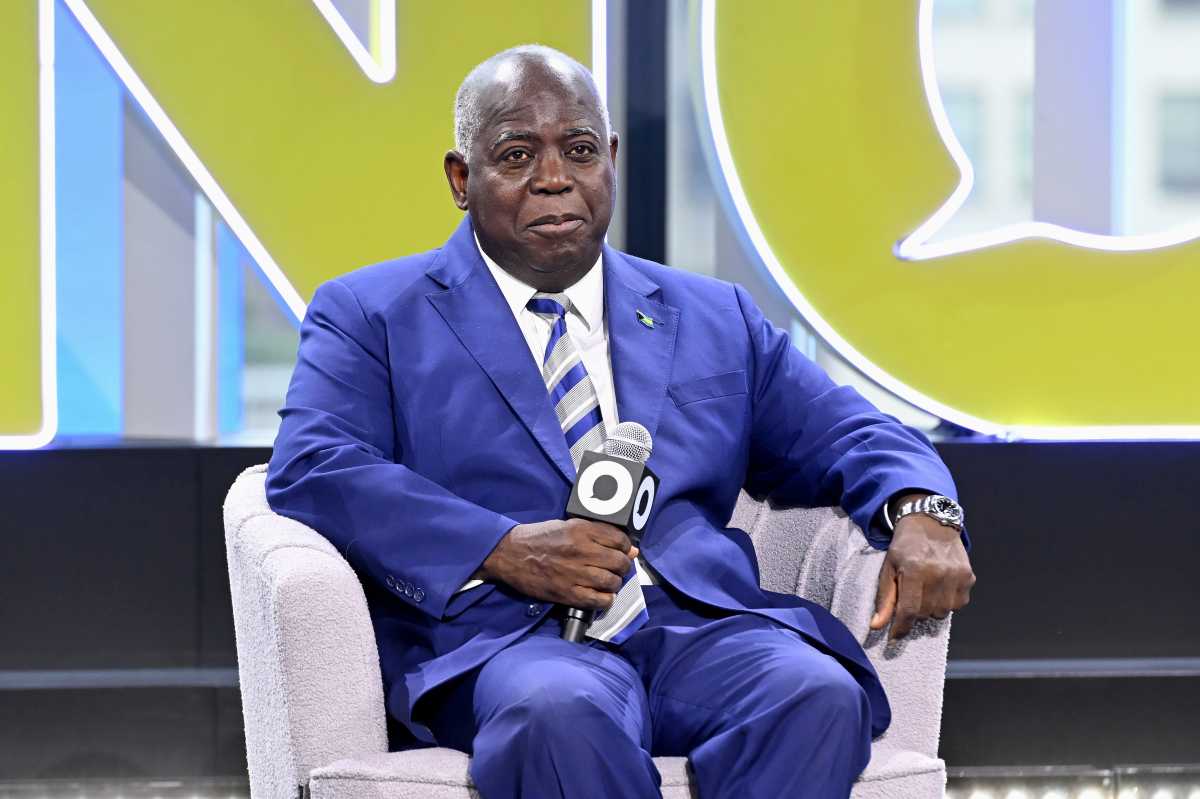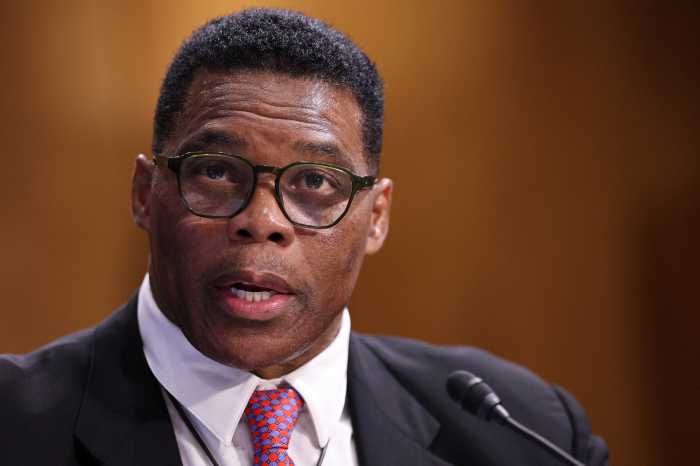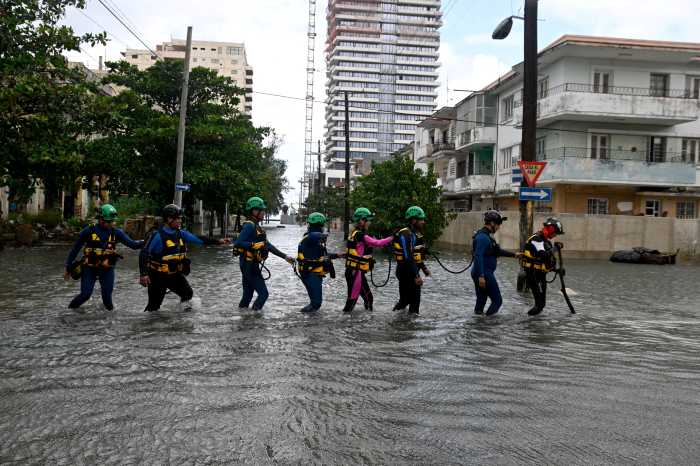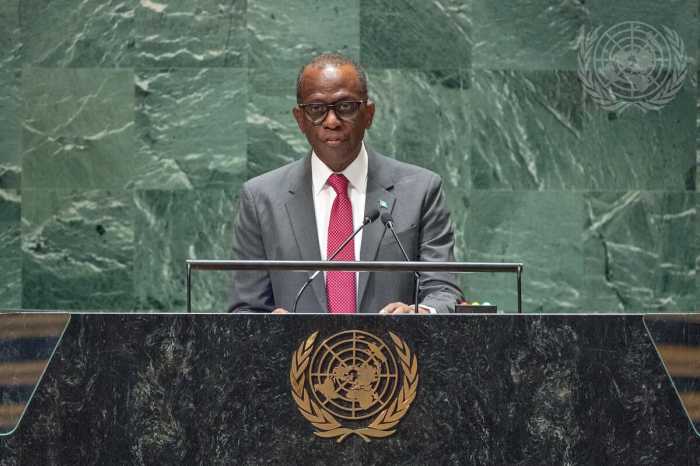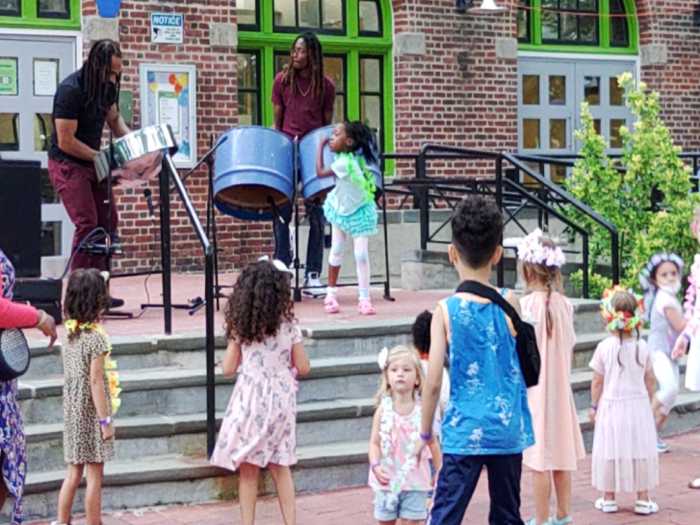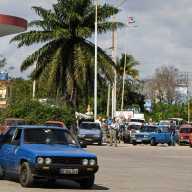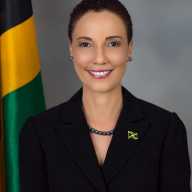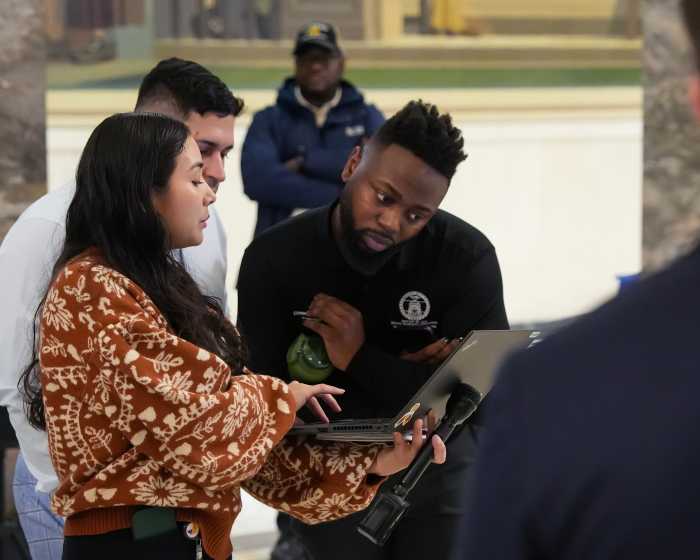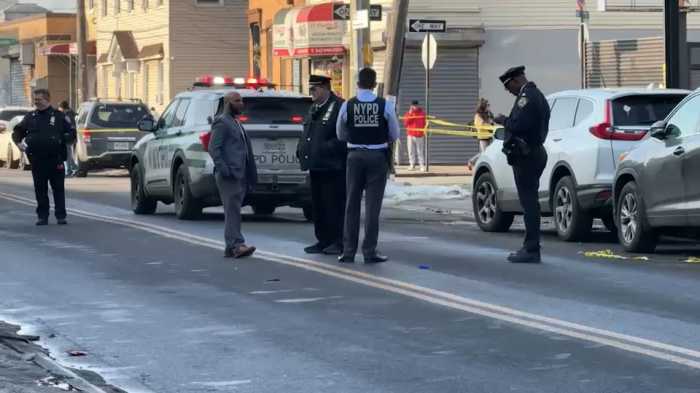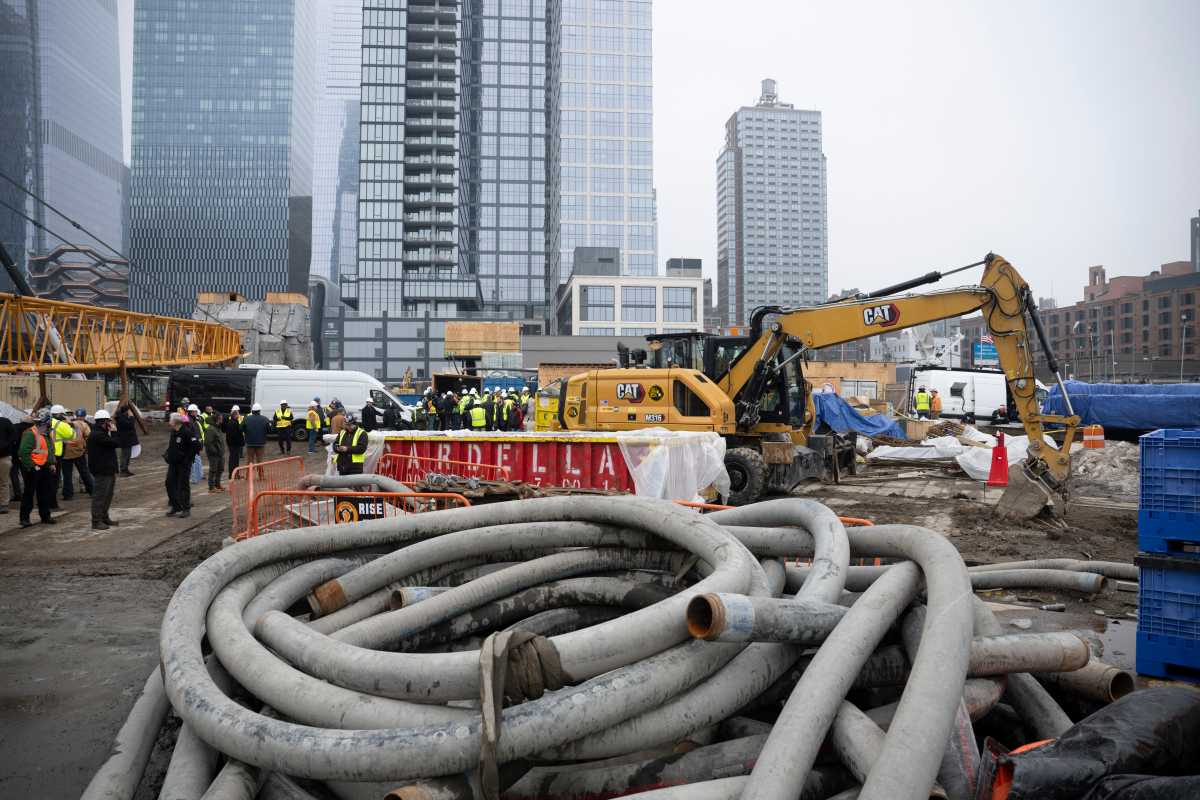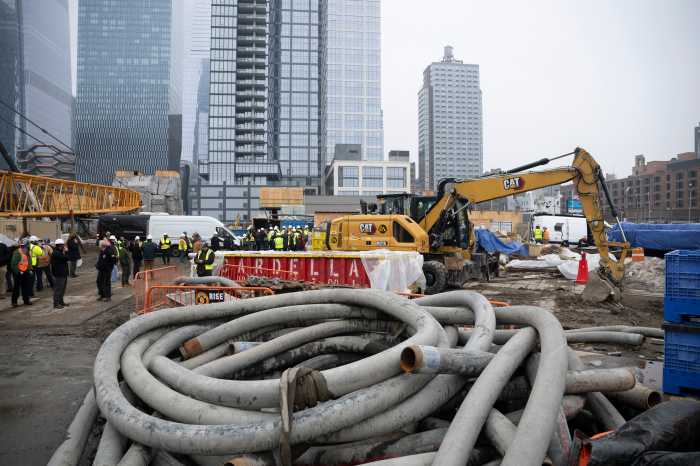Bahamas
The two main political parties in the Bahamas are in disagreement over which of them has a better crime plan for the country, with the unofficial start of campaigning for the next general election constitutionally due by September 2026, but expected to take place before that date.
The ruling Progressive Liberal Party (PLP) has dismissed the crime plan of the main opposition Free National Movement (FNM) as a “recycling of ideas that are already being acted on.”
“Under the [Philip] Davis administration, crime is being confronted with the most comprehensive plan in our nation’s history, the five-pillar strategy,” the PLP said. “This plan is not on paper. It is being implemented across the country. Major crime has fallen sharply. Guns are being seized in record numbers in partnership with international partners. Gang networks are being disrupted. The courts are working through backlogs and delivering more convictions.”
FNM Leader Michael Pintard, speaking at the launch of the party’s 10-point crime plan recently, said that the Davis administration had no comprehensive plan to deal with crime in the country.
Pintard said his party’s crime plan, if elected to government, includes hiring and retaining more police officers, restoring trust in the force, broadening community policing, modernising the force, clearing the backlogs in the court, updating loose laws, addressing the abuse of bail, expanding rehabilitation programs for offenders and victims, investing in crime prevention, and reviving communities.
Pintard told a news conference these ten steps form a plan that is “tough, balanced, and achievable.”
“They are not promises for tomorrow, they are actions we will take under an FNM government to make our communities safer and give our young people better choices. This is the path forward: firm enforcement, real prevention, and genuine intervention. And it is the plan the FNM is ready to deliver.”
Pinard added that an FNM government would launch a major recruitment drive “guided by the FNM’s manpower audit, to put more police where they are needed most.
But in its statement, the ruling PLP said that “to pretend these efforts are not happening is to insult the hard work of the police officers who put their lives on the line every day.
“The Progressive Liberal Party stands with the Bahamian people, who deserve more than empty rhetoric,” the party said.
Commissioner of Police Shanta Knowles, delivering the Royal Bahamas Police Force’s mid-year crime report in July, told a news conference that overall crime had dropped 14%, with 1,223 cases recorded so far this year compared to 1,420 during the same period in 2024.
Notably, murders decreased by 26%, with 44 homicides in 2025 compared to 60 in 2024.
Knowles reported that 64 percent of those cases have been solved and that 84 percent of victims were between the ages of 18 and 45.
Caribbean
The Pan American Health Organisation (PAHO) says countries across Latin America and the Caribbean have advanced toward a regional strategy to address the growing health burden of accidents caused by venomous animals.
From snakebites and scorpion stings to encounters with venomous spiders and caterpillars, PAHO said recently that these incidents claim hundreds of lives annually and leave thousands of survivors with lifelong disabilities, particularly among rural and indigenous communities.
PAHO, through its Pan American Centre for Foot-and-Mouth Disease and Veterinary Public Health (Panaftosa), and with support from the Wellcome Trust, hosted the First Regional Meeting of National Programs for Venomous Animal Accidents (Redpeva) at the Butantan Institute in São Paulo, Brazil.
PAHO director Dr. Jarbas Barbosa addressed participants and stressed the urgent need for a unified response to avoid “preventable deaths and disabilities” caused by envenoming by venomous animals.
PAHO said the statistics are “sobering,” noting that more than 57,000 snakebite cases are reported each year in Latin America and the Caribbean, although the real number is likely higher due to underreporting in remote areas with limited healthcare access.
According to a recent Panaf-tosa survey conducted across the Americas, including the Caribbean, cases of scorpion and spider envenoming significantly increased between 2021 and 2024- averaging 198,647 and 48.345 cases per year, respectively.
The survey says snakebite and caterpillar incidents remained stable but still exceeded figures from previous years.
Climate change, Barbosa noted, is exacerbating the problem by shifting ecological patterns and exposing new communities to venomous species.
PAHO said the Redpeva meeting laid the groundwork for a regional roadmap with clear priorities: building a collaborative network to share expertise, using technology to map high-risk areas, standardising surveillance, and improving antivenom access. PAHO said Panaftosa also introduced new guidelines on snake envenoming and a virtual training course to equip healthcare workers with critical skills.
PAHO said this regional effort aligns with global momentum to address snakebite envenoming, recognised by the World Health Organization (WHO) as one of the most lethal neglected tropical diseases.
PAHO said International Snakebite Awareness Day, observed each Sept. 19, raises awareness about the scale and impact of snakebite envenoming, especially in underserved communities.
PAHO said Redpeva is the first formal technical platform for regional coordination on venomous animal accidents — “an area often overlooked in public health policy.”
Dominica
The Public Service Union (PSU) says while it has agreed to an 8% salary increase for public servants over a three-year period, two contentious matters have delayed the union’s push for an agreement with the Dominica government.
PSU general secretary Thomas Letang said while there was agreement on the 8% salary increase and several employee benefits, the union wants the government to consider some retired employees.
“We had agreed to all the matters, including salaries, except that we had one or two concerns. And one of the things we are concerned about is that there are people who in the service in 2021 and 2022,” Letang said. “They have since retired, but they did not benefit from the reclassification…and had the salary for that period, they would have been paid, but they did not.”
He said that the union has written to the government on the matter and that “a one-off payment should apply to them.”
“The government has responded, not agreeing to that request from us,” Letang said, adding that the union is also pushing for representation on the government housing loans board.
He said while the legislation governing the board “does not say the union must have some on the board, the practice in the past was always that the union as well as the Police Welfare Association would have somebody representing those institutions…”
Meanwhile, the Dominica Association of Teachers (DAT) says its members will receive an 8% salary increase over a three-year period following the conclusion of negotiations with the government.
“In terms of salary increases, teachers, like all other government employees, will receive an 8% salary increase for the biennial 2024-27: 3% for the year 2024-25, 2% for 2025-26 and 3% for 2026-27,” said DAT president Mervin Alexander.
Guyana
President Dr. Mohamed Irfaan Ali has warned that the rising military tension between Venezuela and the US could destabilise the region and challenge the country’s sovereignty.
Speaking during a public meeting late Friday, Ali said it’s clear that only strong and experienced leadership can safely navigate the country through this turbulent period and “this is not a time for weak leadership.”
He told the crowd that intelligence from Guyana’s strategic partnerships has already exposed the presence of criminal enterprises and networks linked to destabilisation efforts in the region.
As Venezuela ramps up its aggression and the international community observes closely, Ali said Guyana must be able to make decisions with maturity, respect, and credibility.
“These decisions are not easy. They require experience, they require international presence, and our sovereignty, our national security, our existence, our livelihood, and our country must be prepared to work in this new environment,” he maintained.
Beyond diplomatic maneuvering, Ali said, the situation demands unity. Ali called on citizens to stand together, rejecting the “false prophets of the opposition who, in the past, made empty promises to farmers, youth, and indigenous communities.
While the opposition continues to spew reckless statements, he pointed out that the PPP/C government is actively defending Guyana’s territorial integrity and securing strong alliances with partners across the Americas, Europe, Africa, Asia, and even the Middle East.
Ali said the PPP/C will not allow “demons to run loose and destroy what the people have built over the past five years.” This is a clear reference to the PPP/C’s political rivals, who, combined, have nothing to offer the Guyanese population.
Instead, the president pledged the PPP/C government’s commitment to confronting these challenges head-on with courage and strategy and with the support of allies who recognise Guyana’s strong commitment to democra-cу.
Apart from this issue, the president informed supporters of the PPP/C’s plans for Region Five and the nation, urging the crowd to ensure they vote for prosperity and reject the agents of destruction.
Haiti
The Kenya-led Multinational Security Support Mission (MSS) said it has recaptured the Télcos Station from the criminal gangs led by the figure known as “Izo2.”
In a statement posted on its Facebook page, the MSS said that the operation was carried out during the early hours of Monday and involved the Haitian National Police (PNH).
“The gangs suffered heavy losses as the security forces conducted a methodical sweep, moving door to door to neutralise armed resistance. Several individuals attempting to flee or hide were apprehended, while a cache of weapons and other materials was seized and is now in PNH custody,” the statement noted.
It said as part of the operation, MSS and PNH teams are also clearing roadblocks erected by gangs along routes leading to Télcos and Kenscoff, restoring safe passage for local communities.
“Sending a strong and unambiguous message, PNH Director General Vladimir Paraison and MSS Force Commander Godfrey Otunge affirmed that the era of impunity for gangs is coming to an end. They warned that those who continue to bear arms will face decisive action, while more targeted operations are already planned,” the statement said.
Jamaica
The Electoral Office of Jamaica (EOJ) is reminding electors to maintain proper conduct at polling stations when Jamaicans head to the polls for the general election on Sept. 3.
Director of Elections Glasspole Brown stressed that polling stations must remain free of campaigning and disorder.
“When you are at the polling station, you are not to campaign…the law does not allow for campaigning to take place. Therefore, you should not be encouraging anybody in the line to vote a particular way, he told JIS News.
Brown also appealed for patience and compliance with presiding officers, who are responsible for managing the voting process.
“We ask persons to remain calm, remain patient and listen to the instructions of the presiding officer and abide by them,” he said.
“The process of voting must be secret. You should not be disclosing your preference for a particular candidate to anybody within the polling station,” Brown cautioned.
He further advised electors to avoid wearing clothing that promotes a candidate. While people will not be barred from wearing party colours, garments with slogans or photographs are prohibited.
Brown also discouraged lingering at polling stations after casting a ballot.


